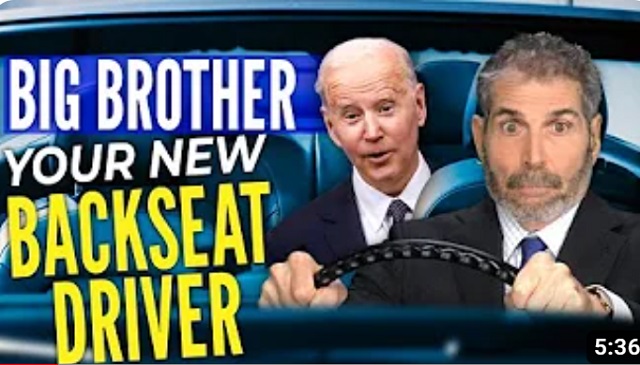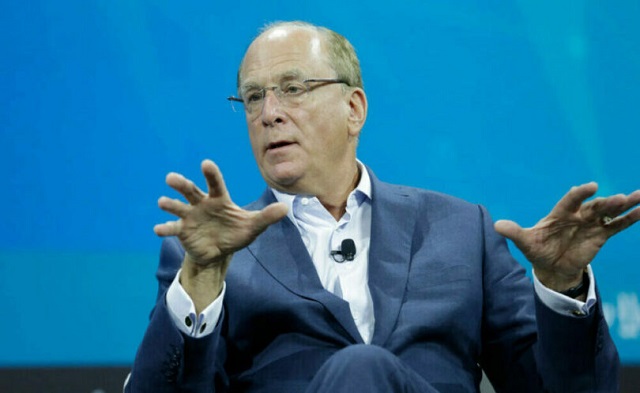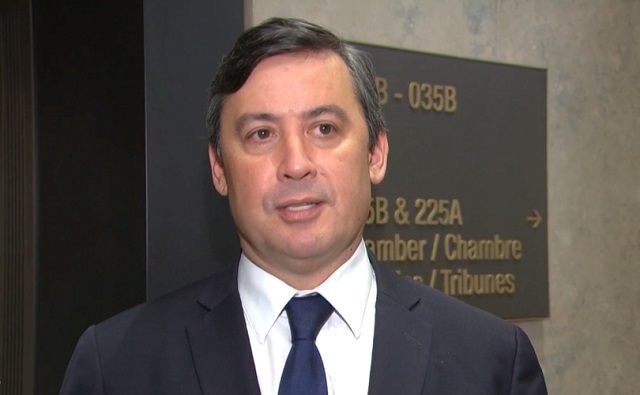Bruce Dowbiggin
Blood Simple. Climate Simple. Endless Deception
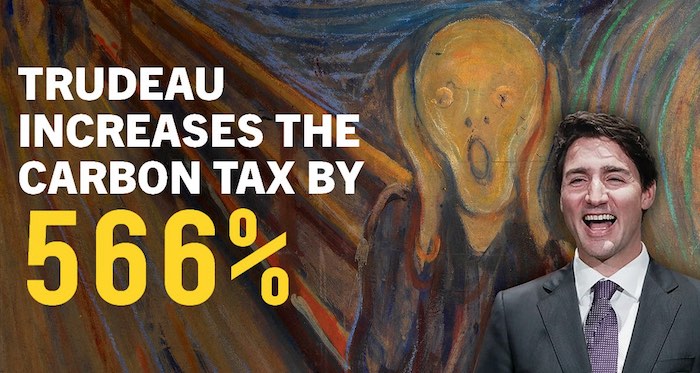
Sign up today for Not The Public Broadcaster newsletters. Hot takes/ cool slants on sports and current affairs. Have the latest columns delivered to your mail box. Tell your friends to join, too. Always provocative, always independent.
Einstein, “If I were wrong, it wouldn’t take a dozen scientists to disprove me – one would be sufficient.”
Watching a commercial for new cars produces an ambivalent mix of nostalgia and rage. The conventional car industry seems to be selling much the same product in much the same manner as it always has. “Ooh, look at that sleek, well-washed car with the nice mpg.”
Nostalgia, because if geniuses like WEF’s Klaus Schwab and his acolytes Justin Trudeau and Pete Buttigieg have their way, gasoline-powered cars are about to go the way of the Studebaker. Quoth the U.S. Transportation secretary: “The more pain we are all experiencing from the high price of gas, the more benefit there is for those who can access electric vehicle,” Pete doesn’t get into the icky details of how the cars will be powered or where the energy goes from. Trust him.
Rage because who made Klaus Schwab king of the world? Don’t Trudeau and Buttigieg work for the citizens of sovereign nations? Apparently not, as Schwab has ordered his munchkins to end private ownership of cars. And so they shall. “A design process that focuses on fulfilling the underlying need instead of designing for product purchasing is fundamental to this transition,” the WEF announced. “This is the mindset needed to redesign cities to reduce private vehicles and other usages.” From his lips to Justin’s ears.
Klaus also wants to re-design the countryside by forcing nations to adopt organic farming. So he has Trudeau ordering Canada’s farmers to reduce fertilizer use by 30 percent— all to meet the fantastical Paris Accord commitments he’s made on behalf of Canadians to reduce greenhouse gas emissions by 40 to 45 percent compared to 2005 levels by 2030. (If you want to see how this WEF brainwave is working, check out Sri Lanka, Ghana or Argentina.)
No one outside Trudeau’s pocket of private-jet pilgrims thinks tanking Canada’s agriculture and energy security is anything but an invitation to reliance on others. So it needs a little persuasion technique.
First they must create urgency. Luckily they have the arts-faculty dimwits of journalism to aid in the obfuscation. Asking today’s earnest scribblers to assess climate science is like asking an arsonist to consider a box of matches. For example, escalating storm damage becomes proof of catastrophe. “We should fully expect that over time the economic losses from disasters will grow as wealth grows,” writes Roger Piece Jr.. “So looking just at growing loss numbers may be good for political advocacy, but it doesn’t tell us much about how impacts are changing”
And so they regurgitate the Great Reset Doctrine: The Science is Settled.

Steven A. Koonin, Obama’s former Energy Department undersecretary for science, now director of the Center for Urban Science and Progress at NYU, begs to differ. He describes a huge game of “telephone” where climate messages go in one end and, massaged by the committed, emerge in different form for the media at the other end of the line. “The discussion should not be about ‘denying’ or ‘believing’ the science,”he writes in his book Unsettled. “Climate change is real and affected by human activity. But we are very far from having the knowledge needed to make good policy.”

To the rage of the Doomsayers, Koonin elaborates on what Schwab, Prince Charles at al. gloss over. “Our best climate models still fail to explain the actual climate data… To the surprise of many, the country’s warmest temperatures have not increased since 1960 and are no higher in recent years than they were in 1900.… The net economic impact of human-induced climate change will be minimal through at least the end of this century.”
Scientist Richard A. Mueller, who says he’s a converted skeptic about climate change, nonetheless notes: “I still find that much, if not most, of what is attributed to climate change is speculative, exaggerated or just plain wrong. I’ve analyzed some of the most alarmist claims, and my skepticism about them hasn’t changed.”
Then there’s professor Roger Pielke Jr.: “Let’s face it, disasters have become deeply politicized as part of advocacy for climate action. Climate action is important, of course, but not so important that we should mislead people or misrepresent the current state of science. But here we are.”
Former U.S. budget director David Stockman spared no one in America. “What’s really in play here is the all-out commitment of the Biden Administration to destroy the fossil-fuel industry in the name of preventing a climate catastrophe that is pure fiction.”
And yet the Schwabians like Trudeau, who only lightly brushed up against higher education, are blind to any subtleties. They see only certainties in science’s variability when there is a legacy to create. One having everything to do with his preening and nothing to do with the welfare of Canada’s citizens.They must submit.
“Dan Allan: Canadians have to understand a basic fact. Canada is less than 0.5% of the global population. We pay a very high Carbon Tax to try to make a difference. Except it doesn’t matter. Because 98.5% of the world’s population does not pay a Carbon Tax. We are only punishing ourselves.”
Perhaps the only comfort in this messianic pursuit is how poorly Canadian governments have fared in backing up politicians’ caprices with results. Combined, Conservative and Liberal governments have set emission targets in 1988, 1990, 1993, 1997, 2010, 2015, 2016 and 2021. They haven’t hit one yet. It’s looking likely they’ll keep their record of imperfection.
But that won’t stop them pushing for more ways to cripple the economy.
Bruce Dowbiggin @dowbboy is the editor of Not The Public Broadcaster (http://www.notthepublicbroadcaster.com). A two-time winner of the Gemini Award as Canada’s top television sports broadcaster, he’s a regular contributor to Sirius XM Canada Talks Ch. 167. Inexact Science: The Six Most Compelling Draft YearsIn NHL History, , his new book with his son Evan, was voted the eighth best professional hockey book of by bookauthority.org . His 2004 book Money Players was voted seventh best, and is available via http://brucedowbigginbooks.ca/book-personalaccount.aspx
Bruce Dowbiggin
Coyotes Ugly: The Sad Obsession Of Gary Bettman

It came to this. Playing in the 6,000 seat Mullet Arena on the campus of Arizona State. Owned by a luckless guy who eschewed the public spotlight. Out of the playoffs, their bags packed for who knows where, the Arizona (née Phoenix) Coyotes gave an appreciative wave to the tiny crowd gathered to say Thanks For The Memories.
With that they were history. Although NHL commissioner-for-life Gary Bettman has promised the last in a set of hapless owners that he can revive the franchise for a cool billion should he build the rink that no one was willing to build for the Yotes the past 20 years.
The Arizona Republic said good riddance. “Metro Phoenix lost the Coyotes because we are an oversaturated professional and college sports market with an endless supply of sunshine and recreational choices. Arizona may have dodged a slapshot:
We have the NFL Cardinals, the MLB Diamondbacks, the NBA Suns, MLB spring training, the WM Phoenix Open, the Phoenix Rising, the WNBA Mercury, the Indoor Football League Rattlers and the Arizona State Sun Devils. There hasn’t been a household name on the Coyotes since Shane Doan, and half of Phoenix probably doesn’t know who he was”.
Likely they’ll be a financial success in Salt Lake City where there’s a viable owner, lots of money and a will to make it work. They’ll need a will because— stop me if you’ve heard this before about the Coyotes— the rink they’ll play in this fall has only 12,500 unobstructed views for hockey.
Watching this farce we recalled getting a call from Blackberry co-founder Jim Balsillie in 2008, shortly after our book Money Players was a finalist for the Canadian Business Book of The Year. We’d written a fair bit about the Coyotes in our work and someone had told Balsillie we might be the ones to talk to about a plan he was concocting to buy the bankrupt Coyotes and eventually move them to Hamilton.

Balsillie was salty over the way he’d been used as a stalking horse in the financial troubles of the Pittsburgh Penguins in 1990s. Flush with money from the huge success of RIM, Balsillie offered to buy the Pens, with an eye to moving them to southern Ontario if Pittsburgh didn’t help build a new arena for the team.
In time, Balsillie saw that Bettman was only trying to protect the investment Mario Lemieux and others had in the Pens. Balsillie was the black hat who eventually spooked Pittsburgh into giving the current owners what they wanted. At the end of the day, Mario got his money and Balsillie was given a “thanks for trying”: parting gift of nebulous promises.
Still smarting, Balsille vowed not to be used again. in his desire to bring the NHL to southern Ontario. So when the Coyotes owner Jerry Moyes threw the keys to the team on Bettman’s desk, he saw an opening in the bankruptcy that followed. Seeing Bettman as the impediment, Balsillie decided to buy the team out of bankruptcy, a process the NHL could not legally prevent.
What Balsillie wanted to know was “What then? How would Bettman fight back?” We told him that no one flouts Bettman’s authority within the NHL. (All the current owners since 1993 have come aboard on his watch.) And that he’d have to get the Board of Governors to approve his purchase. Odds: Nil.
That’s what happened. Rather than admit that the Valley of the Sun was poisoned for hockey, Bettman found another series of undercapitalized marks to front the franchise while the league quietly propped up the operation. No longer was the Coyotes’ failure about the fans of Arizona. It was about Gary Bettman’s pride.

Protestors stand outside a press conference in Tempe featuring Arizona Coyotes executives discussing propositions related to a new arena and entertainment district. (Photo by Brooklyn Hall/ Cronkite News)
Where he had meekly let Atlanta move to Winnipeg he fought like hell to save Arizona. And his power. (His obstinacy on U.S. network TV is another story.)
Fast forward to last week and the abject failure of that process. The Arizona Republic naively fawned on Bettman for his many attempts to save the team. In fact, they were just attempts to buttress his grip on the league. While the Coyotes may have been a mess, Bettman has succeeded in preserving the investments of most of the business people who bought his NHL business prospectus.
Sometimes it meant riding into Calgary to chastise the locals for their parsimony in not giving the Flames a new rink. Ditto for Edmonton. Ditto for Winnipeg and other cities. Other times it was to shore up weak partners to protect the equity of other prosperous cities. Sometimes it was to tell Quebec City, “Not gonna’ happen.”
For his loyalty to the owners and through some luck— Gretzky to the Kings— Bettman has made the NHL work in places no one might’ve imagined. Nashville. Raleigh. Tampa. Las Vegas. Dallas. Not at the level of the NFL, NBA or MLB, but at a comfortable equity-affirming status. Nothing happens without his say-so in the NHL. Or without him getting credit. Secondary NHL execs who wanted credit for their innovations were quietly punted.
When Houston finally gets a franchise from Gary they’ll part with $1.5 billion for the honour. While the commissioner has played down new franchises and expanded playoffs, you can bet your last dollar that he’s told owners they’re in line for more expansion cash— cash they don’t have to split with players in collective bargaining.
One more certainty. As long as Bettman rules the NHL you won’t see an NHL team back in Arizona.
Bruce Dowbiggin @dowbboy is the editor of Not The Public Broadcaster A two-time winner of the Gemini Award as Canada’s top television sports broadcaster, he’s a regular contributor to Sirius XM Canada Talks Ch. 167. Inexact Science: The Six Most Compelling Draft Years In NHL History, his new book with his son Evan, was voted the seventh-best professional hockey book of all time by bookauthority.org . His 2004 book Money Players was voted sixth best on the same list, and is available via brucedowbigginbooks.ca.
Bruce Dowbiggin
Why Are Canadian Mayors So Far Left And Out Of Touch?

‘The City of Edmonton pays for a 22-person climate team but doesn’t know who on that team is responsible for what, or what that team has accomplished. Meanwhile, Council takes a pay raise and bumps our property taxes by 8.6%” @michaelistuart
We just returned from a long trip to discover that the City of Calgary wants to potentially re-zone our neighbourhood. Bridle Estates is a collection of 175 bungalow villas for people aged 55-plus. While some people still work most of the inhabitants are retirees. The city’s earnest idea is to create low-cost housing for the tens of thousands arriving here in the city from away.
You can see why a city hall obsessed with white privilege wants to democratize our neck of the south-west corner of the city. Enforced justice has a great tradition. 1970s American cities decided that bussing was the antidote to segregation. After a SCOTUS decision allowing the practice in 1971 (back when liberals owned the court) progressives pushed through an aggressive plan to bus kids from the inner city to the leafy suburbs. And vice versa.
It worked like a charm. For conservatives, that is. It radicalized a generation of voters who soon installed Ronald Reagan as president, and empty buses went back to the depot. The Democrats went from the party of the people to the party people in Hollywood. With time dulling memories, contemporary Woke folk are reviving the integration dream. This time the mostly white suburbs will bear the brunt of the government’s immigration fixation (400K-plus in the third quarter).

There are meetings planned where citizens will be able to address their elected officials— no doubt in a respectful voice. But anyone who’s dealt with Climate Crisis Barbie— Mayor Jyoti Gondek— has much optimism. This is a mayor who exploited a three-way split in centre-right voting here to declare a Climate Emergency on her first day in office.
Then she rolled out hate-speech laws to protect her from being razzed in public. For this and other fabulist blunders— her messing with the new arena project drove a worse deal and a two-year delay in a home for the Calgary Flames— she faced a recall project (which failed to collect over 400K voters’ signatures).
With a housing bubble expanding everyday, Her Tone Deafness has decided that owning a home is so passé. ”We are starting to see a segment of the population reject this idea of owning a home and they are moving towards rental, because it gives them more freedom.” She added that people have become “much more liberated around what housing looks like and what the tenure of housing looks like.”
As the Calgary’s schmozzles and Edmonton’s dabble in climate extravagance illustrate the municipal level of government in Canada is a few lobsters shy of a clambake. Across the country major cities are in the hands of radical NDP soldiers or virtue warriors who would rather have symbols than sewers to talk about.
In Toronto, Jack Layton’s widow Olivia Chow is leveraging her 37 percent mandate to make Toronto a kinder, Wok-er city. In Vancouver and Victoria, B.C., the open-air drug agendas of new mayors and city councils have sent capital fleeing elsewhere. Despite crime and construction chaos, Montreal mayor Valerie Plante won a second term, by emphasizing her gender.

In times when the coffers were full, this ESG theatre might have been a simple inconvenience. But since the federal and provincial governments began shoving responsibilities and costs downward to municipalities there is no wiggle room for grandstanding politicians at the city level. Or for hapless amateurs.
With the public incensed over residential property tax increases on one side and the blandishments of aggressive developers on the other, competent governance has never been more needed in the urban areas. While feds can (and have) printed money to escape their headaches and the provinces can offload costs onto the cities, the municipalities have no room for risk.
The time bomb in this equation is the debt load that the three levels can sustain. After this week’s budget, federal spending is up $238B, or 80 percent since 2015. Coming off this free-spending budget the feds have pushed the federal debt to more than $1.2 trillion this year (in 2015, the debt was $616 billion.) None of the provinces has shown any appetite for the 1990s-style cuts to reduce their indebtedness. Leaving cities to crank the property-tax handle again.
So far, Canada’s cities have been able to use friendly municipal bonds to ease their fiscal problems. But if the Canadian economy continues its tepid performance with no reduction in debt, financial experts tell us that there could be a flight from Canadian municipal bonds— with a consequent spike in interest rates elsewhere.
The backlash on free-spending governments will be severe— and restricted municipalities will be hardest hit. None of this is resonating with Canadians still flush with cash from Covid. The stock markets are still buoyant and those living in cashbox houses are counting their dividends. Willful denial is the Trudeau legacy.

Which is why so many Canadian were shocked last week when American AntiTrump media star Bill Maher did an intervention on Canadian conceits. Using the True North as his warning to America, Maher ripped apart the gauzy leftist dream of Canada as the perfect society, the Sweden north of Estevan. By the time he was done, the single-payer myth was bleeding on the ground.
Maher knows that the bill is coming due for free-spending Canada and its climate charlatans. (The IMF is already warning of a global crisis over debt loads.) The question is: will Canadians come to the same conclusion before it’s too late to save the cities?
Bruce Dowbiggin @dowbboy is the editor of Not The Public Broadcaster A two-time winner of the Gemini Award as Canada’s top television sports broadcaster, he’s a regular contributor to Sirius XM Canada Talks Ch. 167. His new book Deal With It: The Trades That Stunned The NHL And Changed hockey is now available on Amazon. Inexact Science: The Six Most Compelling Draft Years In NHL History, his previous book with his son Evan, was voted the seventh-best professional hockey book of all time by bookauthority.org . His 2004 book Money Players was voted sixth best on the same list, and is available via brucedowbigginbooks.ca.
-

 COVID-192 days ago
COVID-192 days agoWHO Official Admits the Truth About Passports
-
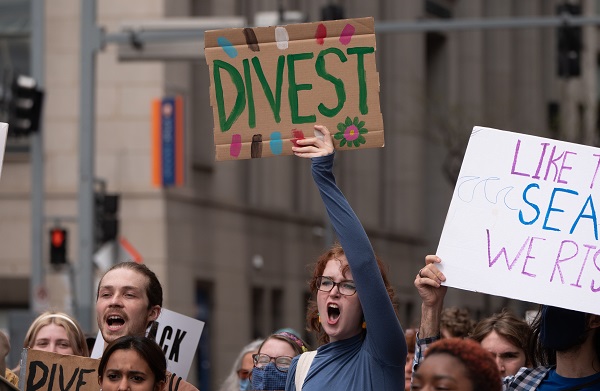
 Energy2 days ago
Energy2 days agoAnti-LNG activists have decided that they now actually care for LNG investors after years of calling to divest
-

 Energy2 days ago
Energy2 days agoReflections on Earth Day
-

 International2 days ago
International2 days agoUN attacks stay-at-home motherhood as ‘gender inequality’
-
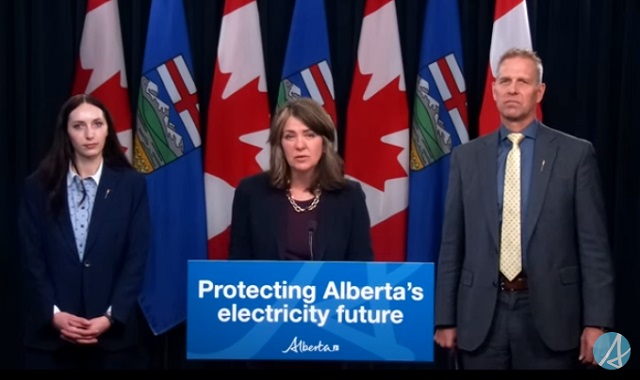
 Alberta2 days ago
Alberta2 days agoProvince to stop municipalities overcharging on utility bills
-
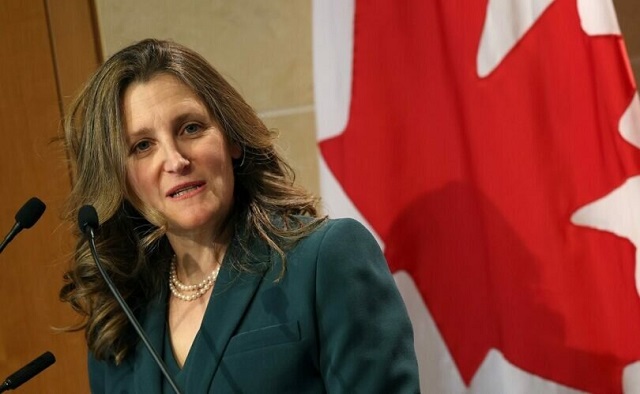
 Housing1 day ago
Housing1 day agoTrudeau’s 2024 budget could drive out investment as housing bubble continues
-

 Alberta1 day ago
Alberta1 day agoAlberta government should create flat 8% personal and business income tax rate in Alberta
-
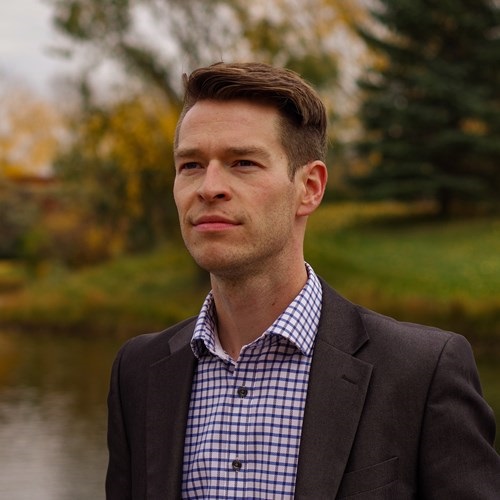
 2024 City Councilor By-Election2 days ago
2024 City Councilor By-Election2 days agoChad Krahn wins City Council by-election: Official results Friday




